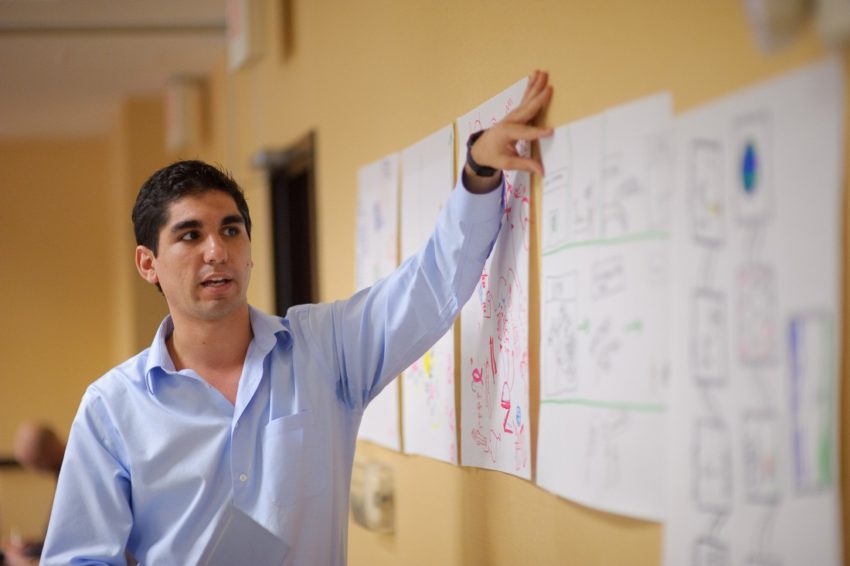
Share On Social!
 It motivated Andrew Jimenez to pursue a PhD “when it previously wasn’t a thought.”
It motivated Andrew Jimenez to pursue a PhD “when it previously wasn’t a thought.”
It opened Jasmin Berrios’ eyes to new cancer research fields to study.
“It” is the Éxito! Latino Cancer Research Leadership Training program at the Institute for Health Promotion Research (IHPR) at the UT Health Science Center at San Antonio.
Éxito! (English: Success!) recently received a $1.4 million grant from the National Cancer Institute to continue to offer its annual five-day summer institute, internships, and other activities from 2015-2020 to empower master’s-level students and health professionals—like Jimenez and Berrios—to pursue a doctoral degree and cancer research careers.
Of 101 Éxito! graduates since 2010, more than 30 percent have applied to doctoral programs and more than 20 percent are currently enrolled in a doctoral program.
“Our program is increasing the number of Latino doctors who study cancer control, which will increase the capacity to reduce cancer in this population,” said Dr. Amelie Ramirez, director of Éxito! and the IHPR at the UT Health Science Center.
Latinos earn just 3.9 percent of all science and engineering doctoral degrees conferred, according to a 2015 report by the National Science Foundation.
Éxito!, which started in 2010, recruits master’s level students and professionals from across the country to take part in a five-day summer institute to provide motivation, skills and resources needed to take the next step in their education and apply for doctoral programs. The summer institute brings Latino researchers and mentors to teach cancer prevention, research, cultural nuances, and career options.
Participants can apply for internships and doctoral support retreats, too.
“The hope is that participants go on to earn doctoral degrees and conduct novel research on why Latinos suffer worse outcomes from cancer and chronic disease,” Ramirez said.
Explore More:
Healthcare Access, Healthy Families & Schools, Healthy Lifestyles, Latino Cancer, Latino ObesityBy The Numbers
25.1
percent
of Latinos remain without health insurance coverage



